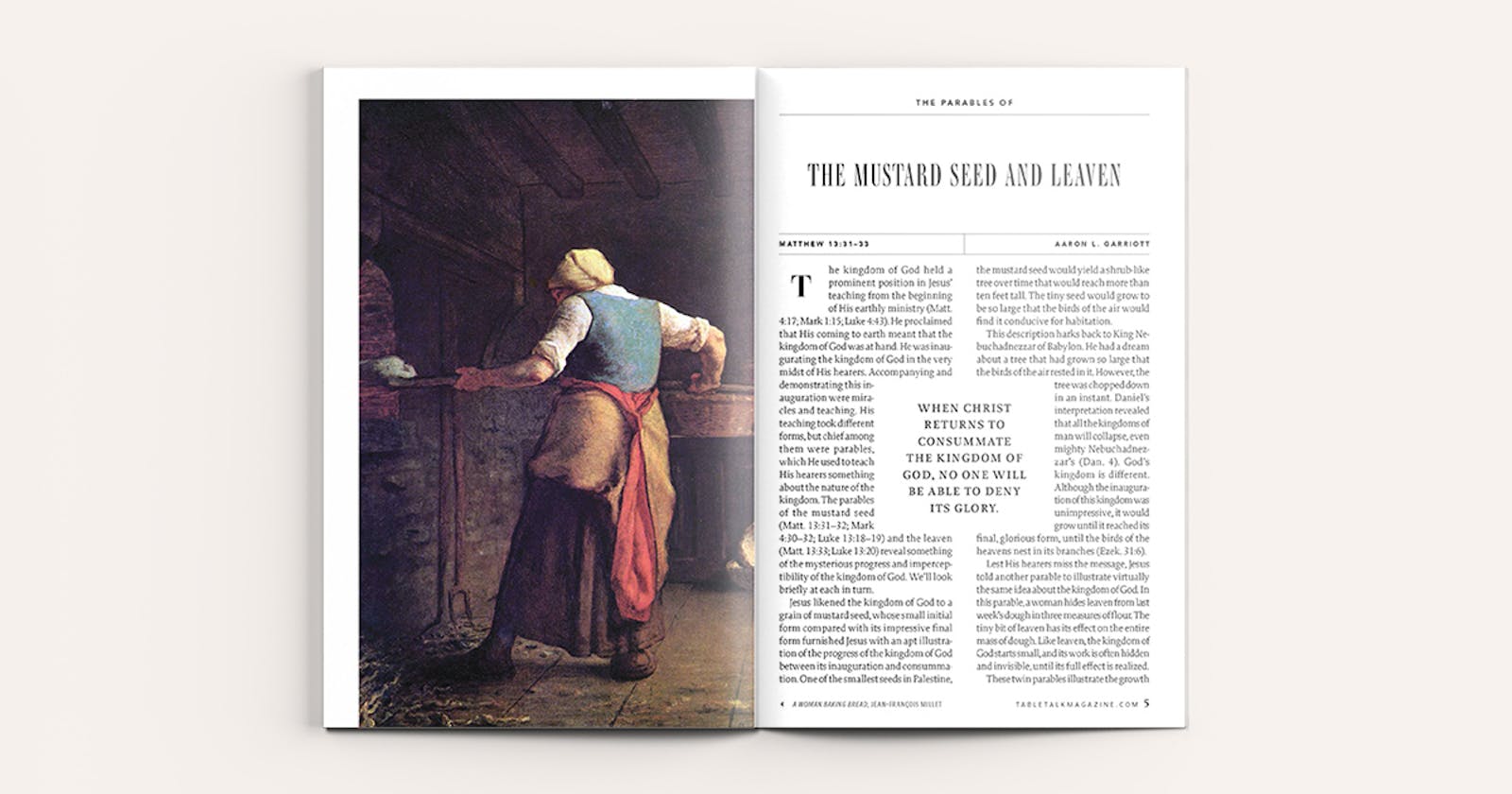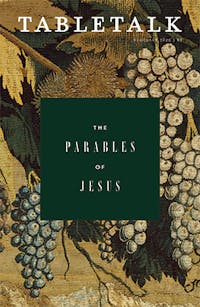
Request your free, three-month trial to Tabletalk magazine. You’ll receive the print issue monthly and gain immediate digital access to decades of archives. This trial is risk-free. No credit card required.
Try Tabletalk NowAlready receive Tabletalk magazine every month?
Verify your email address to gain unlimited access.
The kingdom of God held a prominent position in Jesus’ teaching from the beginning of His earthly ministry (Matt. 4:17; Mark 1:15; Luke 4:43). He proclaimed that His coming to earth meant that the kingdom of God was at hand. He was inaugurating the kingdom of God in the very midst of His hearers. Accompanying and demonstrating this inauguration were miracles and teaching. His teaching took different forms, but chief among them were parables, which He used to teach His hearers something about the nature of the kingdom. The parables of the mustard seed (Matt. 13:31–32; Mark 4:30–32; Luke 13:18–19) and the leaven (Matt. 13:33; Luke 13:20) reveal something of the mysterious progress and imperceptibility of the kingdom of God. We’ll look briefly at each in turn.
Jesus likened the kingdom of God to a grain of mustard seed, whose small initial form compared with its impressive final form furnished Jesus with an apt illustration of the progress of the kingdom of God between its inauguration and consummation. One of the smallest seeds in Palestine, the mustard seed would yield a shrub-like tree over time that would reach more than ten feet tall. The tiny seed would grow to be so large that the birds of the air would find it conducive for habitation.
This description harks back to King Nebuchadnezzar of Babylon. He had a dream about a tree that had grown so large that the birds of the air rested in it. However, the tree was chopped down in an instant. Daniel’s interpretation revealed that all the kingdoms of man will collapse, even mighty Nebuchadnezzar’s (Dan. 4). God’s kingdom is different. Although the inauguration of this kingdom was unimpressive, it would grow until it reached its final, glorious form, until the birds of the heavens nest in its branches (Ezek. 31:6).
Lest His hearers miss the message, Jesus told another parable to illustrate virtually the same idea about the kingdom of God. In this parable, a woman hides leaven from last week’s dough in three measures of flour. The tiny bit of leaven has its effect on the entire mass of dough. Like leaven, the kingdom of God starts small, and its work is often hidden and invisible, until its full effect is realized.
These twin parables illustrate the growth of God’s kingdom between Jesus’ first and second advents. In them, Jesus showed that the manner in which He ushered in the kingdom of God need not sow any doubts concerning the power and legitimacy of His messianic office and the kingdom. The humble inauguration was no mistake—it was planned by God. John Calvin noted, “The Lord opens his reign with a feeble and despicable commencement, for the express purpose, that his power may be more fully illustrated by its unexpected progress.”

Since Jesus uttered these parables, the mustard seed has taken root and blossomed. The leavened bread has expanded exponentially. Those who opposed Jesus and His followers after His ascension tried to squelch the infant church—to chop down the tree—before it went beyond Jerusalem. Yet, their attempts were futile. In fact, the more they chopped, the more the tree grew. The martyrdom of Stephen is illustrative, for it precipitated a dispersion that carried the gospel beyond Jerusalem, into Judea, into Samaria, and to the ends of the earth (Acts 8:4). The history of the church is the fulfillment of Jesus’ promise that not even the gates of hell would prevail against His church (Matt. 16:18).
But the kingdom that Jesus inaugurated awaits His return for its full and final consummation. In the interim, we walk by faith and not by sight (2 Cor. 5:7). We are citizens of this kingdom that cannot be shaken (Heb. 12:28). When Christ returns to consummate the kingdom of God, no one will be able to deny its glory (Matt. 25:31; Mark 14:62). The One who took on flesh and was born in a humble estate will return in splendor and judgment (1 Thess. 4:16; Rev. 1:7) to consummate the kingdom. Then, finally, the dwelling place of God will be with man (Rev. 21:3–4).
